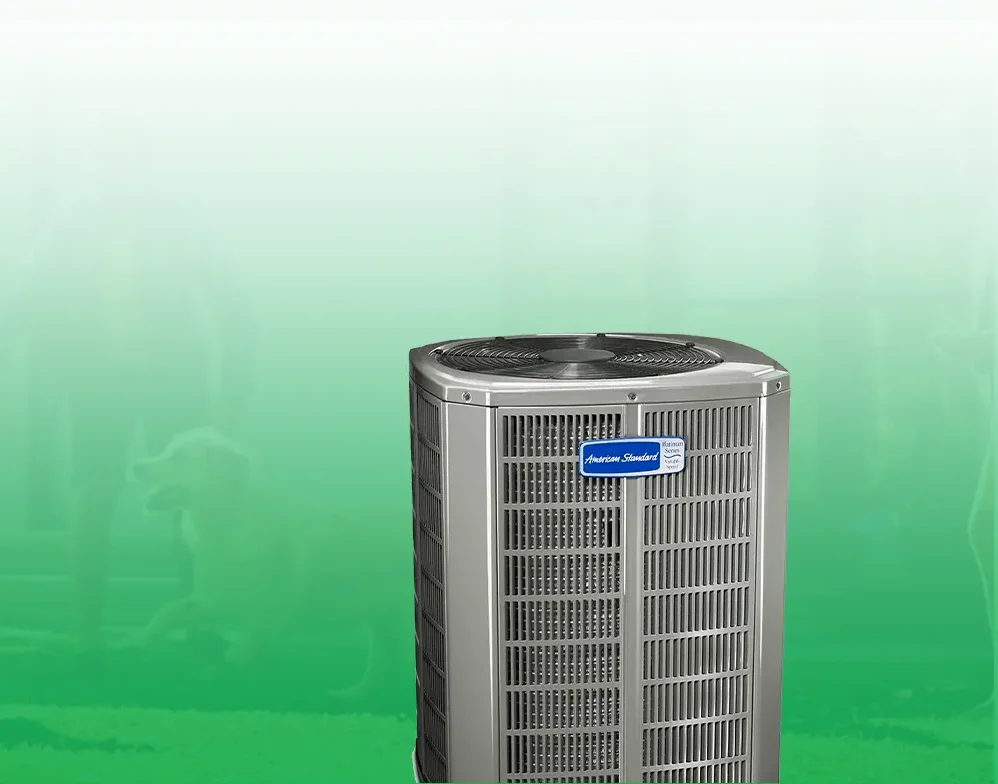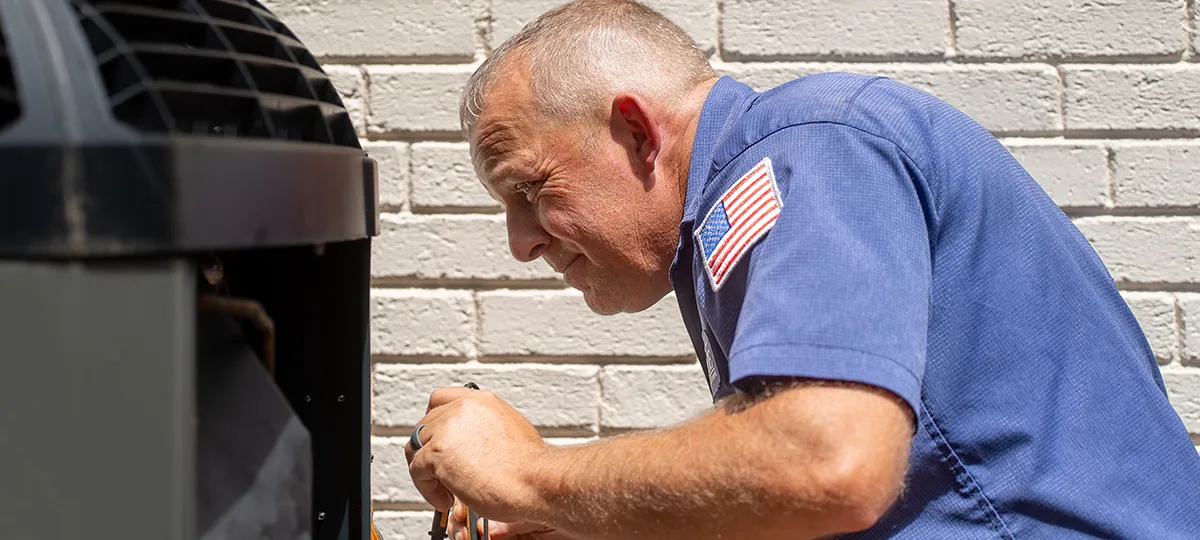When you install a brand-new HVAC system, you’re expecting smooth sailing: crisp, cool air in the summer, cozy warmth in the winter, and everything in between handled without breaking a sweat. But then spring shows up—playful, unpredictable, and anything but consistent. One day it’s chilly enough for a jacket, the next it’s short-sleeves and sunshine. And your HVAC system? It’s getting quite the workout.
While spring may seem like a gentle shoulder season, it actually holds a unique set of challenges and opportunities for your heating and cooling system—especially if it’s brand-new and still settling into your home’s rhythm.
Let’s explore exactly how spring’s quirky weather impacts your HVAC performance and why being aware of it now can set you up for greater comfort and efficiency year-round.
How Does Spring Temperature Change Influence HVAC System Efficiency?
Spring is notorious for its rollercoaster temperatures. Mornings can start in the low 50s, afternoons creep into the upper 70s, and evenings drop back down again. This constant shift keeps your HVAC system switching modes—sometimes multiple times in a single day.
If you’ve recently installed a new system, you might expect it to handle these transitions with ease (and it can), but spring is also when you start to learn how efficiently your system responds to change.
Here’s how spring temperatures influence HVAC efficiency:
- Frequent On-Off Cycles: Drastic day-to-night changes cause your system to cycle more frequently, which can impact overall efficiency if not calibrated correctly.
- Transitional Stress: Switching from heating to cooling puts extra demand on components like thermostats, compressors, and sensors.
- Thermostat Confusion: Smart thermostats may still be “learning” your schedule and home’s heat retention during spring, sometimes leading to over-correction.
- Partial Load Challenges: HVAC systems perform best when running at a steady load. Spring often requires only partial heating or cooling, which may lead to short cycling if your system isn’t sized properly.
That said, a well-installed and properly configured HVAC system should adapt fairly well to these changes. Spring is the time to observe how your new system handles real-world shifts—so you can make adjustments before the high-stakes heat of summer arrives.
Can Fluctuating Spring Weather Cause HVAC Systems To Work Harder?
Short answer? Yes. Spring may not be extreme, but it’s inconsistent, and inconsistency makes your HVAC system hustle. One minute it’s heating your home, the next it’s kicking on the AC. That kind of back-and-forth puts both heating and cooling components to work.
Here’s why your HVAC system might be working harder in spring than you think:
- Dual Demands: Spring often requires both heating and cooling within a 24-hour cycle. This can lead to wear on both sets of components early in the year.
- Unpredictable Usage Patterns: If your thermostat is set to “auto,” your system may be making rapid, frequent adjustments to keep indoor temperatures steady—resulting in more run time.
- Short Cycling Risk: When outdoor temperatures hover in the “almost comfortable” range, your system may turn on for just a few minutes at a time. This wears down components faster and uses more energy than longer, sustained cycles.
- Outdoor Unit Exposure: Spring showers and pollen can clog outdoor condensers or reduce heat exchange efficiency—forcing the system to work harder to maintain set temperatures.
While your new system is designed to handle a range of conditions, spring’s unpredictability can be a surprisingly tough training ground. That’s why routine checks and filter changes during this season are especially important.
Why is Spring Humidity Important For HVAC Performance?
When people think of HVAC systems, they usually think of temperature control. But humidity—especially in the spring—is just as important. Spring humidity is sneaky. It’s not as bone-dry as winter, nor as oppressively damp as midsummer. It hovers in that “noticeably muggy but not quite miserable” zone, and this presents a whole new challenge for your HVAC system.
Here’s how spring humidity affects HVAC performance:
- Increased Cooling Load: Even if the temperature is mild, high humidity can make your home feel warmer. That means your AC may kick on earlier or more frequently—even when it’s only 70 degrees outside.
- Comfort Imbalance: High humidity can make it feel stuffy even with cooler temps, leading to a situation where you’re running the AC just to dry the air—not to cool it.
- Condensation Risks: If your system isn’t dehumidifying properly, you might see condensation on windows or walls. Over time, this can contribute to mold growth and damage interior surfaces.
- Thermostat Deception: Your thermostat measures temperature, not humidity. So while the thermostat might read 72°F, your body may feel like it’s 78°F if humidity is high—and your system responds accordingly.
The good news? Many new HVAC systems include built-in humidity control or work well with whole-home dehumidifiers. If comfort still feels elusive in spring, talk to your HVAC tech about adjusting humidity settings or upgrading your system’s capabilities.
Does Mild Spring Weather Reduce The Need For HVAC Adjustments?
At first glance, it might seem like spring is the “easy” season for HVAC systems. Temperatures are manageable, windows can stay open more often, and the furnace or AC doesn’t need to run as hard—or as long. And while it’s true that spring can reduce the total hours your system is working, that doesn’t mean you should ignore it.
Here’s what mild weather doesn’t tell you:
- System Calibration Still Matters: Even with light usage, your HVAC system should be checked for performance calibration. Filters still need changing, and sensors should be verified.
- Ductwork Conditions Can Be Revealed: Mild airflows make it easier to spot strange sounds, poor airflow in certain rooms, or duct leaks that you might not notice in full-blast summer cooling.
- Settings Need Adjustments: You may need to change your programmable thermostat from winter to spring schedules, especially if you’re leaving windows open during the day.
- Comfort Is Relative: Even mild days can feel uncomfortable if your system isn’t distributing air evenly or managing humidity well. Spring is a perfect time to fine-tune those comfort variables.
So yes—spring gives your HVAC system a bit of a break. But it’s also your best opportunity to observe, adjust, and optimize how your new system handles the shoulder seasons. By doing that now, you’ll save yourself the stress of scrambling during extreme weather.
Spring is the Test Drive for Your New HVAC System
Think of spring as the soft launch for your HVAC system. It’s the season where you get to see how your new system handles real-world challenges in a relatively low-pressure environment. That gentle breeze today? It’s actually a chance to test how well your airflow feels across the house. That muggy evening? It’s an opportunity to see how your system handles humidity without maxing out.
The performance of your HVAC system isn’t just about the unit itself—it’s about how it works with your home, your comfort expectations, and your local climate patterns. And spring is the most revealing, valuable season for making sure that partnership is running smoothly.
Maximize Comfort Year-Round With Horne Heating and Air Conditioning Inc.
At Horne Heating and Air Conditioning Inc. , we help homeowners like you get the most out of their HVAC systems—especially during transitional seasons like spring. Whether you’ve just installed a new unit or you’re prepping your system for the heat ahead, our spring performance checks ensure everything is running at peak comfort and efficiency.
We’ll assess airflow, test humidity control, fine-tune temperature responsiveness, and help you create a comfort strategy tailored to your home. Because the best way to beat summer heat is to stay one step ahead—starting in spring.
Schedule your spring HVAC tune-up with Horne Heating and Air Conditioning Inc. today—and give your new system the best start possible.
















